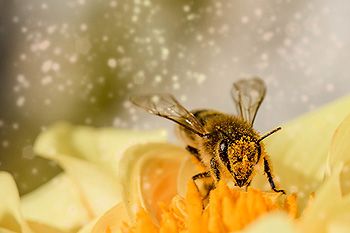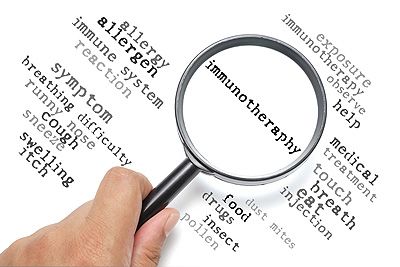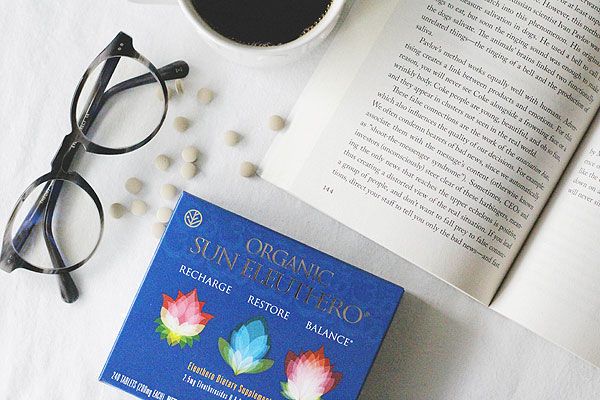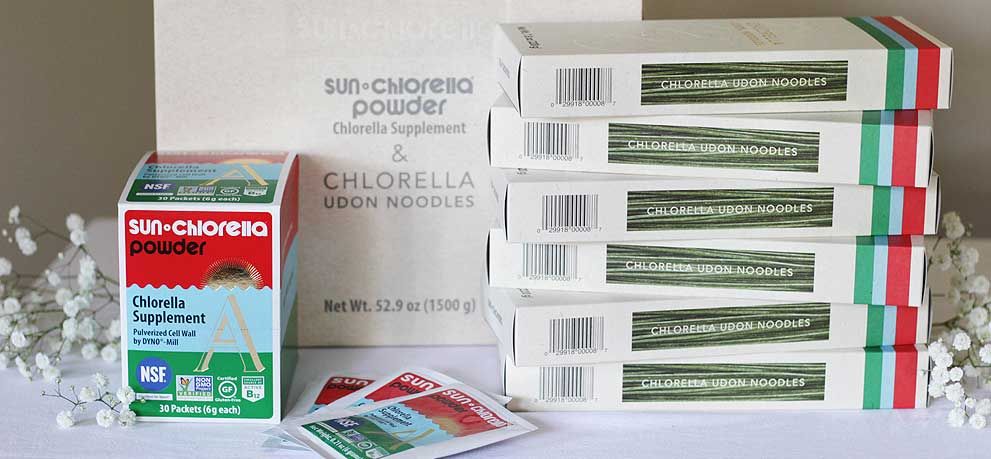

An Effective Treatment For Seasonal Allergies?! Maybe...
If you’re a seasonal allergy sufferer, spring and summer are the seasons of misery . . . All you want is some relief.
For many allergy sufferers, treatment consists of minimizing the symptoms – get that nose unstuffed, keep your eyes from itching . . . and just stop the sneezing, for crying out loud! When you get desperate you’ll do anything, take any drug to get some relief. Even though you know you’ll feel just as bad in a few hours, if not worse.
But what if you could go a step deeper – beyond just putting band aids over the problem? What if instead of just trying to manage your allergies, you could maybe even eliminate them?
New science in the treatment of allergies is promising just this. This new medical approach goes beyond treating allergy symptoms to retraining your body. So the allergic reactions simmer down and, in some cases, eventually stop completely.
Interestingly enough, while this method is used in conventional medicine, its roots are found in the body’s natural way of defending itself.
But before we get into the treatment, let’s make sure we’re on the same page about what seasonal allergies are.
Allergies Are An Immune System That’s Lost Its Direction
Let’s start with taking a look at your immune system. When something foreign enters your body, your immune system’s job is to identify the trespasser. It then has to decide if it’s a threat. If it is a threat, the immune system neutralizes it.
 Notice I didn’t immediately jump to describing immune activity as attacking the threat. That’s part of the immune system’s job. But the first step is identification – so it can discern whether to attack it or not.
Notice I didn’t immediately jump to describing immune activity as attacking the threat. That’s part of the immune system’s job. But the first step is identification – so it can discern whether to attack it or not.
Just like our mind matures and gets more sophisticated as we get older, our immune system is supposed to adapt. It should learn to identify foreign proteins found in pathogenic viruses, bacteria and molds as indications of threats that need to be removed from the body.
On the flipside, the immune system must also learn to know “trespassers” that aren’t threats. It should learn to identify food proteins, proteins from pollen or animal dander as harmless. It should have the sophistication to know that it doesn’t need to interfere with these proteins entering your body.
Being able to distinguish between a threat and something that is harmless is key to immune health.
However, when you have an allergy, your immune system views proteins that should be considered harmless – like grass pollen or dog dandruff – as dire threats.
And consequently it rallies its forces to attack. Some symptoms include coughing, sneezing, wheezing and feeling miserable.
The “Wise Heads” Of Your Immune System
 As you can see, allergies are simply a misdirected immune response.
As you can see, allergies are simply a misdirected immune response.
The key to maintaining immune system balance is found in cells known as regulatory T Cells. These immune cells work to suppress the cells that get your immune system going.
They’re the “wise heads” that tell your immune system not to attack. Think of your immune system as an army directed by a big room full of astute leaders who are busy debating whether to attack or hold back. The regulatory T cells are the ones that are responsible for advocating restraint and sending out those signals if the “trespasser” is harmless.
In someone who has allergies, your regulatory T cells are either low in number or unable to express themselves chemically. They don’t produce the chemical signals adequately to suppress immune activity, to hold your immune system back when the foreign protein is harmless. 1
When you have an allergic reaction, your immune system’s regulatory cells (the wise heads) have lost their effectiveness in directing the immune system activity.
Fortunately, conventional medicine is starting to catch on and has started to find ways that maintain the immune system by improving its regulation of itself.
How Immunotherapy Retrains Your Immune System
Immunotherapy for allergic rhinitis or seasonal allergies exposes the body to increasing doses of the protein causing the allergic reactions – the allergen. Over time, this desensitizes the body to it.
Each dose has an allergen specific to the person’s allergies – birch pollen, cedar pollen, dust mites, grass pollen, ragweed pollen, etc. These doses can be administered in two ways: As shots that place the allergen under the skin or dissolved under the tongue.
And while it doesn’t necessarily completely cure allergies, immunotherapy has clinical evidence showing it can reduce allergic reactions substantially, even after treatment has stopped 2. Immunotherapy is so effective both the World Health Organization and The American College of Allergies, Asthma and Immunology advocate it 3 4 As a 2011 article published in the medical journal, Current Opinions In Allergy And Clinical Immunology points out this is the only treatment that promises to change the immune reaction over the long term. 5
We still don’t know exactly how immunotherapy works. But we have some clues . . . Clinical research demonstrates immunotherapy increases the number of T regulatory cells as well as anti-inflammatory chemical signals put out by regulatory T Cells 6. In other words, it increases the “wise heads” your immune system needs to become savvier and increase its to regulate itself.
Immunotherapy Is Nothing New
 The growing acceptance of immunotherapy in mainstream medicine is exciting. It means more and more people suffering from allergies can gain lasting relief.
The growing acceptance of immunotherapy in mainstream medicine is exciting. It means more and more people suffering from allergies can gain lasting relief.
Thousands of people have benefited from conventional medicine’s adoption of this approach.
However, the basic premise of this treatment – even the treatment itself - is nothing new . . .
Immunotherapy has been around in medical practice for over 100 years. Two doctors started using it in 1901. Homeopathic doctors have been using a form of immunotherapy for generations in conjunction with other allergy treatments 7. In fact, the first doctor to identify pollen as the cause of allergies was a homeopathic physician.8
The theory behind immunotherapy fits perfectly into two fundamental principles of homeopathic medicine. First, homeopathy uses the idea that “like cures like”. And secondly, rather than treating symptoms, homeopathic doctors seek to find a way to strengthen the body so it can do what needs to be done to make the symptoms go away.
Long before homeopathic doctors started using allergens, folk healers used local honey to the same effect. For generations people noted that eating honey helped minimize the spring symptoms that we know now as allergies. And it makes sense . . . Honey is made using the pollen of local plants. So eating the honey over time brings those proteins into your body and can help your body adjust to the proteins found in local pollen. Just like immunotherapy.
Clinical research has borne this out. In one study involving 40 people, taking high doses of local honey resulted in a significant reduction of allergy symptoms. 9 A second study found honey made from birch pollen helped people with birch pollen allergies. 10
Bottom line, immunotherapy builds on an approach that asks the body to adjust itself. Rather than simply suppressing the body’s natural defenses. It strengthens the body and your immune system rather than further weakening it.
Other Ways To Make This Approach Work Even Better
Immunotherapy offers allergy sufferers a real chance for a relief. At the very least, it can reduce the symptoms.
But the implications go deeper . . . it offers a new vision of medicine that seeks to work with the body, strengthen it and help the body fix itself. Like most holistic practices do.
If you have allergies and decide to try immunotherapy, you can do a few things to help it work even better. To be clear, these two recommendations below are not treatments like immunotherapy. Instead, they help support your body’s immune system.
And even if you don’t go with immunotherapy, these steps can still help support healthy immune function:
1. Reduce stress as much as possible
Stress taxes the immune system and has been linked to making allergies worse. 11 Give your body every chance to respond properly to allergen exposure.
Sleep, regular exercise and relaxation all help reduce stress. Sun Eleuthero also has been shown to support immune health and help your body manage stress in a healthy way. 12 13 14 15 16
Studies show probiotics may help reduce allergic reactions. 17 Probiotics may play a crucial role in helping your immune system function properly. In particular, they may help increase the number of regulatory T cells to support immune function balance. 18

4 Tips To Jump From Spring To Summer The Smart Way
Just like when you plant your garden in the spring, if you do it right you end up with a delicious harvest all through summer and into fall. Done wrong, you find yourself in an endless battle with weeds, only a few scrawny beets, and a huge dose of frustration.
Enjoy spring – but go into it strategically. And you’ll find it makes the perfect platform to jump into summer and make a splash.
1. Build Muscle
Even the least active of us get more active in the summer. You can’t help it. However, don’t cramp your activity by jumping in to too much too fast. There is nothing worse than getting excited about a family hike or exploring a new place on bike and finding your body is just not up to it.
Start by building muscle with weights to build a platform for activity. Then build endurance into your routine, using the muscle platform you’ve built as a foundation. This makes sure you protect yourself from injury and then are able exercise long enough to build stamina.
2. Clean House
Shut tight all winter, your house has accumulated a lot of unmentionable microscopic junk. Get rid of it! Start with decluttering. Get rid of extra stuff so you can clean your house more easily.
Then get to cleaning. Make your home a healthier space to breathe and live in. Open the windows and let the clean outside air flush out your house. If you suffer from allergies, keep the windows closed but invest in a good air purifier. You want to keep your home a place of respite from the allergens you face outside. So your body has a chance to recover and relax.
3. Eat Fresh
With spring and summer comes a cornucopia of fresh produce . . . and your body is ready for it. In spring, we naturally want to clean out and renew. Nothing gives us the antioxidant and nutritional power better than fresh fruits and vegetables. Plus, all this fiber-rich food can help your body clean out. Especially when combined with increased activity.
Explore farmer’s markets and get creative with salads and smoothies. Jazz everything up even more with a sprinkle of Sun Chlorella powder. Infused with all this goodness, you’ll find your energy will soar!
4. Make Time
There’s nothing more frustrating than locking yourself up in your office, working, when outside a soft summer evening beckons. So plan ahead for this. Know that with spring and summer you’re going to want to have time to enjoy the outdoors, enjoy life and kick back a little more.
Save Over $55 On This Chlorella Starter Kit!
Tap into spring’s renewing energy with our newly released chlorella starter kit . . . The easiest, most delicious way to give yourself a nutritional boost.
Turn every meal into a Supermeal. Make your favorite noodle recipe with Sun Chlorella Udon Noodles and sprinkle Sun Chlorella Powder on everything you eat or drink.
Each kit comes with:
-
Sun Chlorella Powder - 30 Packets (2X the chlorella per serving than Sun Chlorella tablets or granules
-
Chlorella Udon Noodles - 6 boxes
$94.00
($157.84 Value!)
Call 1-800-829-2828 ext 2477 to order it today.
(Please mention source code NL83)


1 Sogut A et al. Regulatory-T, T-Helper 1, and T-Helper 2 Cell Differentiation in Nasal Mucosa of Allergic Rhinitis with Olive Pollen Sensitivity. Int Arch Allergy Immunol 2012;157:349-353. doi: 10.1159/000329159
2 Eng PA, Borer-Reinhold M, Heijnen IA, Gnehm HP. Twelve-year follow-up after discontinuation of preseasonal grass pollen immunotherapy in childhood. Allergy. 2006;61:198–201.
3 Allergy Immunotherapy. American College of Allergies, Asthma and Immunology website. Viewed 4/30/19 at https://acaai.org/allergies/allergy-treatment/allergy-immunotherapy
4 Maggi E. T-cell responses induced by allergen-specific immunotherapy. Clin Exp Immunol. 2010;161(1):10–18. doi:10.1111/j.1365-2249.2010.04148.x
5 Makatsori, Melina et al. Allergen Immunotherapy: Clinical Outcomes Assessment The Journal of Allergy and Clinical Immunology: In Practice , Volume 2 , Issue 2 , 123 - 129
6 Maggi (2010)
7 Ullman D et al. (2010). A Review of Homeopathic Research in the Treatment of Respiratory Allergies. Alternative medicine review : a journal of clinical therapeutic. 15. 48-58.
8 Ullman (2010).
9 Asha'ari ZA et al. Ingestion of honey improves the symptoms of allergic rhinitis: evidence from a randomized placebo-controlled trial in the East coast of Peninsular Malaysia. Ann Saudi Med. 2013;33(5):469–475. doi:10.5144/0256-4947.2013.469
10 Saarinen K et al. Birch Pollen Honey for Birch Pollen Allergy – A Randomized Controlled Pilot Study. Int Arch Allergy Immunol 2011;155:160-166. doi: 10.1159/000319821
11 Dave ND, Xiang L, Rehm KE, Marshall GD Jr. Stress and allergic diseases. Immunol Allergy Clin North Am. 2011;31(1):55–68. doi:10.1016/j.iac.2010.09.009
12 F. Facchinetti et al. Eleutherococcus senticosus reduces cardiovascular stress response in healthy subjects: a randomized, placebo-controlled trial. Stress and Health, February 2002; Volume 18, Issue 1. pages 11–17.
13 Yance D. Adaptogens In Medical Herbalism. Healing Arts Press, Rochester, VT: 2013.
14 Halstead, BW. Eleutherococcus Senticosus. Oriental Healing Arts Institute. 1984. P. 4
15 Aicher B, et al. Eleutherococcus senticosus: therapie bei akuten grippalen infeckten. Pharm Ztg 2001; 41:11-18
16 Bohn B et al. Flow-cytometric studies with Eleutherococcus senticosus extract as an immunomodulatory agent. Arzneimittelforschung 1987; 37:1193-1196
17 Yang G et al. Treatment of allergic rhinitis with probiotics: an alternative approach. N Am J Med Sci. 2013;5(8):465–468. doi:10.4103/1947-2714.117299
18 Dwivedi M et al. Induction of regulatory T cells: A role for probiotics and prebiotics to suppress autoimmunity. Autoimmun Rev. 2016 Apr;15(4):379-92. doi: 10.1016/j.autrev.2016.01.002. Epub 2016 Jan 7.

